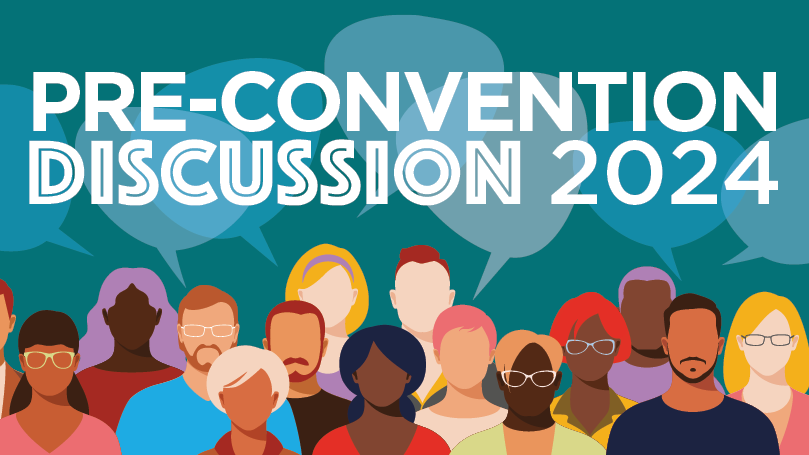
This piece is a contribution to the Pre-Convention Discussion for our 32nd National Convention. During Pre-Convention Discussion, all aspects of the party’s program, strategy, and tactics are up for consideration and debate. The ideas presented here are those of the author or authors alone, and do not necessarily reflect the positions of the Communist Party USA, its membership, or their elected leadership bodies. — Editors
In the recent period of rebirth of the Communist Party, we have stressed the development of local clubs as the nucleus of our organization. This club focus is correct, as we must have a base for the masses of our Party to congregate, democratically and collectively decide local work, identify and develop working-class leaders, and to experiment with new campaigns, projects, and organizing methods. However, while grassroots and club development are the vital life-blood of the Party, organization at and from the top is also necessary. The dialectical development of Communism requires both! As Leninists, we know that development from the grassroots will not develop into organization on its own. It must be guided not simply from policy decisions, but from scientific and active organization and leadership.
To this end, the National Committee has recently proposed that we bring back the democratically chosen position of National Organizing Secretary. This is a fantastic proposal! And this position would be a key place to start in organizing the Party. However, simply voting or delegating someone to a title will not be enough, we must give advanced and measured thought to what kinds of qualifications or experience we are looking for, what kinds of representation we have in mind, and what kinds of work we hope for this Organizational Secretary to accomplish and to aid in accomplishing.
When taking on this project, as with all of our projects, it is good to remember that we need not reinvent the wheel when designing a national organizing campaign to coordinate our work and activate tens of thousands of members. We must learn from our own history, learn from current methods, and we should turn to people who have experience in doing this within labor and political-membership organizations. When looking to decide the Organizer positions, we need to consider whether people have the necessary skills to take on the tasks we expect.
For example, if we have 15,000 members currently, and (modestly) gain another 10,000 in the next 5 years as we did in the last, we would have 25,000 members in 2029. This means, if we are serious, that we should seek to select a National Organizational Secretary with provable organizing experience which would indicate they could take on a project organizing 15,000 people today and 25,000+ people in the not-too-distant future. Certainly, they need not have organized this many people yet, but their ability can not just be based on wishing and vibes, but must be based on hard data, on proven work. Ideally, this position is also able to at some point become a paid position, because just as in any serious mass-political or labor organization, it is a task that would be a full-time job to actually carry out successfully. This may not be possible at the moment, but the material reality of the scope of the project must be considered as we build.
On the district level, District Organizers – who would be working under District Leadership and with coordination and guidance of the National Organizational Secretary – should have proven experience as well. It need not be the level of experience of the National Organizational Secretary, and in less developed districts it can be limited and newer experience, but it should be something measurable and measured, and thought through based on district goals. Without a method of consideration that is scientific, it is easy to fall victim to selection based on unconscious favoritism or a default to seniority. Seniority and amiability do not necessarily indicate someone has the skills or temperament needed to take on the specific tasks we are asking. We cannot assume a leader is up to a task simply because they are strong in a different area of struggle, or are loyal, or are well-read on our Program and capable at applying Marxist-Leninist theory dynamically, though these are all wonderful qualities.
This type of internal organization can seem daunting, but we have the power and skills. In our Party, there are skilled people with these credentials, that is to say with the experiences and proven work necessary. And there are many more we know in our orbit, who with targeted recruitment can be brought into the Communist Party. Through proper direction of our own membership, we can emphasize gaining the knowledge, skills, and experiences we think are necessary for mass organization.
Throughout Party history most of our top leaders have had labor organizing experience for many reasons, but one primary practical reason is because it gives a natural path to know how to organize in the large numbers we now have and further aspire to. Though it is a path we see as central to defeating capitalism, it is not the only path to having this experience. Regardless of which paths our members take within the mass movements, however, we know we need to be training to regain the practical and necessary skills to rebuild a mass organization.


 Join Now
Join Now